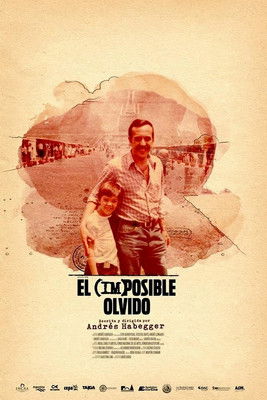El (im)posible olvido
Genres
Documentary
OverView
Argentine filmmaker Andrés Habegger embarks on a deeply personal journey in this documentary, seeking to recover memories and information about his father, Norberto Habegger, a journalist and Montonero activist who disappeared in Brazil in 1978 during a joint operation between the Argentine and Brazilian military. Traveling to places that were part of his life and revisiting old photos and his childhood diaries, the director fills in the gaps in a family history that was interrupted.
Others
Budget
$--
Revenue
$--
Status
Released
Original Language
Spanish
Runtime
81 mins
Rating
10/10
Release Date
10 November 2016
Country
Argentina
